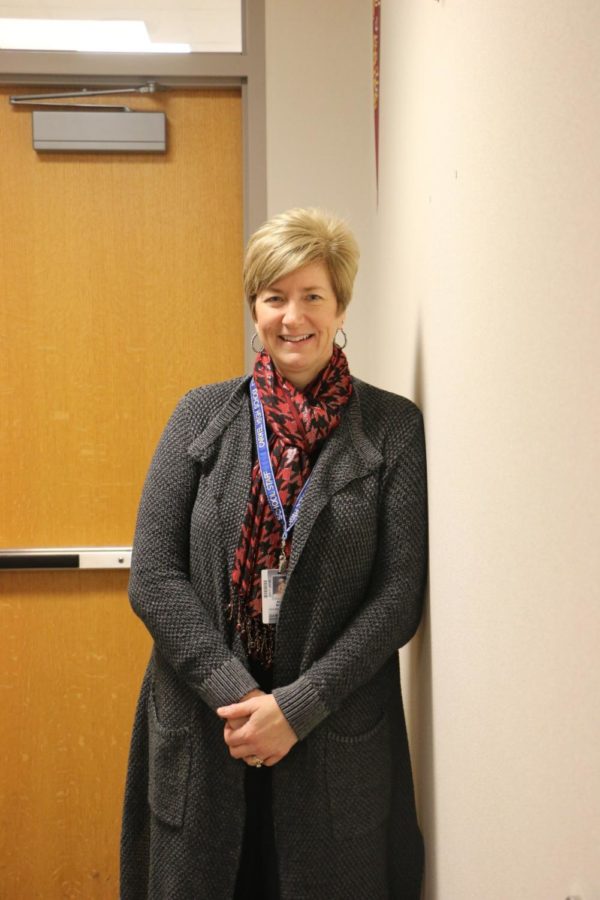Many students struggle with finding the right path for their future as they begin to prepare for college. How do you help students find answers to these difficult questions?
“I think the first thing is really some self-assessment about what your skills and passions and gifts are, so I would recommend the Family Connections account and doing the career assessments, the career interest profiler, the career cluster finder and the strengths explorer, because it really is all about looking into yourself and what you like. That’s probably the first step. The other thing is I try to tell students is that they don’t have to know what they want to do for the rest of their lives when they’re 16, 17 or 18 years old. It’s okay to go into college undecided and then hopefully explore some paths there with some guidance because you don’t have to declare (a major) until you’re a sophomore.”
How is the definition of success different for every student you work with?
“To me, success is not just getting into the college of your dreams; it’s getting through the college of your dreams, so that success is going to obviously look very different for everyone. My idea of success is finding the right college fit where you can develop yourself in all areas academically, emotionally, physically, spiritually and launch yourself into a happy career... When I tell students to look at colleges, I want them to look at where they’re going to have experiential learning, where they’re going to have a mentor that believes in them and that’s going to inspire them, where they’re going to find their tribe, where they’re going to find like-minded students and find their extracurriculars–so there’s not one definition of success for each person. It’s like you have to look at all those factors to find what’s going to work.”
What do you notice are the most common issues among students that can prevent students from making the right decisions about college?
“Parents. The parents are so well-meaning that I think sometimes they’re not listening to their children completely about what their passion is and how they’re wired. I really think it’s a gift that God has given each of us. I think we all want the best for our kids, and I think in Carmel, it’s actually even harder because we live in a very educated, very affluent population where we have successful parents who have very happy, comfortable lifestyles, so we want that for our children.”
How does a student decide on the right path?
“They don’t always (know). I guess the thing is there’s no irreversible decision. I think what you do is you take a strong core curriculum that prepares you for college and then you start with where you think you are, but I mean there’s so many people who change their major. I think you just have to go with what feels right at that point, but I would say in high school, take advantage of the classes that we offer here. Take advantage of shadowing professionals. Take advantage of internships. Keep trying to explore to get that background. I don’t think there’s a magic ball that we can say anyone’s doing the exact right path. I think being open-minded about experiences can lead you to that right path.”
What do you think is the most difficult part of figuring out your future? What advice would you give to students working through that?
“I would just take away the pressure of having to know exactly what you want to do. It’s okay to not know exactly, but to use those tools, explore a little bit more, take advantage of the curriculum. (I would recommend) trying to be as stress-free as possible. The one thing I would say is starting earlier than later. Starting to start thinking about college, I know that’s not what you want to think about as a freshman, but by sophomore or junior year, because then if you’re starting to explore colleges and seeing what you like it’s taking the stress out of it and that’s half the battle. If someone’s really looking all of a sudden for colleges and they’re doing it their summer after junior year, that’s stressful. The key is starting earlier than later to make this as stress-free a process (as possible) to do that exploration. It’s harder to cram all that exploration in if you’re only doing it in a few months.”































![What happened to theater etiquette? [opinion]](https://hilite.org/wp-content/uploads/2025/04/Entertainment-Perspective-Cover-1200x471.jpg)













































![Review: “The Immortal Soul Salvage Yard:” A criminally underrated poetry collection [MUSE]](https://hilite.org/wp-content/uploads/2025/03/71cju6TvqmL._AC_UF10001000_QL80_.jpg)
![Review: "Dog Man" is Unapologetically Chaotic [MUSE]](https://hilite.org/wp-content/uploads/2025/03/dogman-1200x700.jpg)
![Review: "Ne Zha 2": The WeChat family reunion I didn’t know I needed [MUSE]](https://hilite.org/wp-content/uploads/2025/03/unnamed-4.png)
![Review in Print: Maripaz Villar brings a delightfully unique style to the world of WEBTOON [MUSE]](https://hilite.org/wp-content/uploads/2023/12/maripazcover-1200x960.jpg)
![Review: “The Sword of Kaigen” is a masterpiece [MUSE]](https://hilite.org/wp-content/uploads/2023/11/Screenshot-2023-11-26-201051.png)
![Review: Gateron Oil Kings, great linear switches, okay price [MUSE]](https://hilite.org/wp-content/uploads/2023/11/Screenshot-2023-11-26-200553.png)
![Review: “A Haunting in Venice” is a significant improvement from other Agatha Christie adaptations [MUSE]](https://hilite.org/wp-content/uploads/2023/11/e7ee2938a6d422669771bce6d8088521.jpg)
![Review: A Thanksgiving story from elementary school, still just as interesting [MUSE]](https://hilite.org/wp-content/uploads/2023/11/Screenshot-2023-11-26-195514-987x1200.png)
![Review: "When I Fly Towards You", cute, uplifting youth drama [MUSE]](https://hilite.org/wp-content/uploads/2023/09/When-I-Fly-Towards-You-Chinese-drama.png)
![Postcards from Muse: Hawaii Travel Diary [MUSE]](https://hilite.org/wp-content/uploads/2023/09/My-project-1-1200x1200.jpg)
![Review: "Ladybug & Cat Noir: The Movie," departure from original show [MUSE]](https://hilite.org/wp-content/uploads/2023/09/Ladybug__Cat_Noir_-_The_Movie_poster.jpg)
![Review in Print: "Hidden Love" is the cute, uplifting drama everyone needs [MUSE]](https://hilite.org/wp-content/uploads/2023/09/hiddenlovecover-e1693597208225-1030x1200.png)
![Review in Print: "Heartstopper" is the heartwarming queer romance we all need [MUSE]](https://hilite.org/wp-content/uploads/2023/08/museheartstoppercover-1200x654.png)



